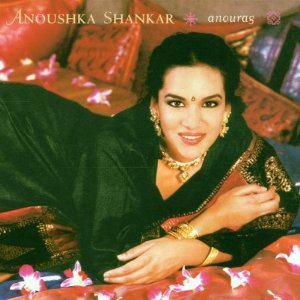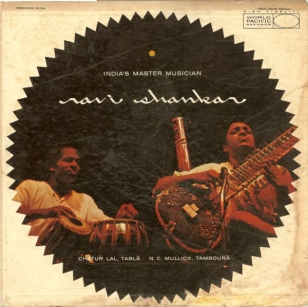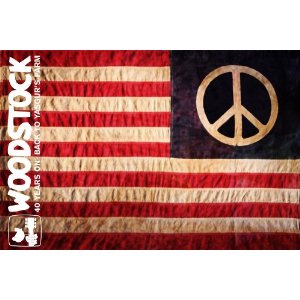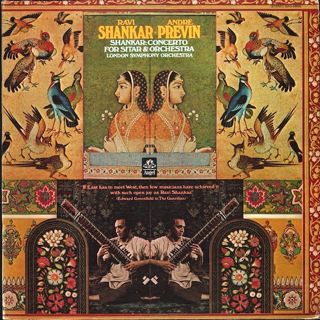
Anourag is an album of Indian classical music performed by Anoushka Shankar, released in 2000. Anoushka Shankar's father, sitar master Ravi Shankar, adapted six ragas for her to play on this album.

Raga is a 1971 documentary film about the life and music of Indian sitarist Ravi Shankar, produced and directed by Howard Worth. It includes scenes featuring Western musicians Yehudi Menuhin and George Harrison, as well as footage of Shankar returning to Maihar in central India, where as a young man he trained under the mentorship of Allauddin Khan. The film also features a portion of Shankar and tabla player Alla Rakha's acclaimed performance at the 1967 Monterey Pop Festival.

India's Master Musician is an album by Hindustani classical musician Ravi Shankar released in March 1959. It was recorded in Hollywood, California. It was later digitally remastered and released in CD format through Angel Records, with digital remastering by Squires Productions.

Ravi Shankar's Music Festival from India was an Indian classical music revue led by sitarist and composer Ravi Shankar intended for Western concert audiences and performed in 1974. Its presentation was the first project undertaken by the Material World Charitable Foundation, set up the previous year by ex-Beatle George Harrison. Long a champion of Indian music, Harrison also produced an eponymous studio album by the Music Festival orchestra, which was released in 1976 on his Dark Horse record label. Both the CD format of the Ravi Shankar's Music Festival from India album and a DVD of their performance at the Royal Albert Hall in London were issued for the first time on the 2010 Shankar–Harrison box set Collaborations.

In Concert 1972 is a double live album by sitar virtuoso Ravi Shankar and sarodiya Ali Akbar Khan, released in 1973 on Apple Records. It was recorded at the Philharmonic Hall, New York City, in October 1972, and is a noted example of the two Hindustani classical musicians' celebrated jugalbandi (duet) style of playing. With accompaniment from tabla player Alla Rakha, the performance reflects the two artists' sorrow at the recent death of their revered guru, and Khan's father, Allauddin Khan. The latter was responsible for many innovations in Indian music during the twentieth century, including the call-and-response dialogue that musicians such as Shankar, Khan and Rakha popularised among Western audiences in the 1960s.

Woodstock 40 Years On: Back to Yasgur's Farm is a six-CD live box-set album of the 1969 Woodstock Festival in Bethel, New York. Its release marked the 40th Anniversary of the festival.

"I Am Missing You" is a song by Indian musician Ravi Shankar, sung by his sister-in-law Lakshmi Shankar and released as the lead single from his 1974 album Shankar Family & Friends. The song is a rare Shankar composition in the Western pop genre, with English lyrics, and was written as a love song to the Hindu god Krishna. The recording was produced and arranged by George Harrison, in a style similar to Phil Spector's signature sound, and it was the first single issued on Harrison's Dark Horse record label. Other contributing musicians include Tom Scott, Nicky Hopkins, Billy Preston, Ringo Starr and Jim Keltner. A second version appears on Shankar Family & Friends, titled "I Am Missing You (Reprise)", featuring an arrangement closer to a folk ballad.
Kamalesh Maitra, often referred to by the title Pandit, was an Indian classical musician, composer and teacher. He is recognised as the last master of the tabla tarang – a melodic percussion instrument consisting of numerous individually tuned hand drums, set in a semicircle. Maitra grew up in Calcutta and played the tabla until joining Uday Shankar's ballet company in 1950 and taking up the tabla tarang. He became the company's musical director and toured internationally with the troupe through to the mid 1970s.

West Meets East is an album by American violinist Yehudi Menuhin and Indian sitar virtuoso Ravi Shankar, released in Britain in January 1967. It was recorded following their successful duet in June 1966 at the Bath Musical Festival, where they had played some of the same material.

Music of India: Morning and Evening Ragas is the debut album by Indian sarod master Ali Akbar Khan, released in 1955. Issued on Angel Records, it is considered a landmark recording, being the first album of Indian classical music ever released.

West Meets East, Volume 2 is an album by American violinist Yehudi Menuhin and Indian sitar virtuoso Ravi Shankar, released in 1968. It is the second album in a trilogy of collaborations between the two artists, after the Grammy Award-winning West Meets East (1967).
Kamala Chakravarty is an Indian classical musician and former dancer, known for her association with sitar maestro Ravi Shankar. From 1967 until the late 1970s, she accompanied Shankar, in the role of tambura player and singer, in a number of acclaimed performances, including the Monterey International Pop Festival (1967), his Human Rights Day duet with violinist Yehudi Menuhin (1967), the Concert for Bangladesh (1971) and the Music Festival from India (1974). She lived with Shankar as his "wife" from 1967 to 1981, while he was still married to musician and teacher Annapurna Devi.

Tana Mana is an album by Indian musician Ravi Shankar, originally credited to "the Ravi Shankar Project" and released in 1987. The album is an experimental work by Shankar, mixing traditional instrumentation with 1980s electronic music and sampling technology. Shankar recorded much of Tana Mana in 1983 with sound effects innovator Frank Serafine, but it remained unreleased until Peter Baumann, head of new age record label Private Music, became attached to the project. The album title translates to mean "body and mind".

Ravi Shankar: In Celebration is a compilation box set by Indian classical musician and composer Ravi Shankar, released in 1996 on Angel Records in conjunction with Dark Horse Records. The four discs cover Shankar's international career, from the 1950s to the mid 1990s, and include recordings originally released on the World Pacific, HMV, Angel, Apple, Dark Horse and Private Music record labels. Shankar's friend George Harrison compiled and co-produced the set, which was issued as part of year-long celebrations for Shankar's 75th birthday.
Viji Subramaniam, also known as Viji Shankar, was an Indian singer. She was the daughter of singer Lakshmi Shankar and Rajendra Shankar. Like her mother and uncle, Viji was a musician and trained in both the Indian classical systems.

Collaborations is a four-disc compilation box set by Indian classical musician Ravi Shankar and former Beatle George Harrison. Released in October 2010 on Dark Horse Records, it compiles two studio albums originally issued on that label – the long-unavailable Shankar Family & Friends (1974) and Ravi Shankar's Music Festival from India (1976) – and Chants of India, first issued on Angel Records in 1997. Although all three albums were originally Shankar releases, for which Harrison served in the role of music producer and guest musician, both Shankar and Harrison are credited as artists on the box set. Each of the collaborative projects represents a departure from Shankar's more typical work as a sitarist and performer of Hindustani classical ragas, with the box set showcasing his forays into, variously, jazz and rock, Indian folk and orchestral ensembles, and devotional music.

Live: Ravi Shankar at the Monterey International Pop Festival is a live album by Indian sitarist Ravi Shankar, released on the World Pacific record label in November 1967. It consists of part of Shankar's celebrated performance at the Monterey International Pop Festival in California on 18 June 1967. Shankar was accompanied throughout by his regular tabla player, Alla Rakha, who performs a frenetic five-minute solo on the recording.

Ravi Shankar's Festival from India is a double album by Indian musician and composer Ravi Shankar, released on World Pacific Records in December 1968. It contains studio recordings made by a large ensemble of performers, many of whom Shankar had brought to the United States from India. Among the musicians were Shivkumar Sharma, Jitendra Abhisheki, Palghat Raghu, Lakshmi Shankar, Aashish Khan and Alla Rakha. The project presented Indian classical music in an orchestral setting, so recalling Shankar's work as musical director of All India Radio in the years before he achieved international fame as a soloist during the 1960s.

Concerto for Sitar & Orchestra is a studio album by Indian musician and composer Ravi Shankar with the London Symphony Orchestra (LSO) conducted by André Previn. The concerto was premiered at London's Royal Festival Hall on 28 January 1971, and subsequently released in Britain and America.
Rijram Desad, often credited as Rij Ram Desad, was an Indian classical musician, multi-instrumentalist and teacher, based in Bombay. Beginning in the early 1940s, he performed on many Indian film soundtracks and in ballet presentations. He was known for his versatility as a musician and his ability to master a wide range of percussion and string instruments. According to cultural historian Naseem Khan, his skill on the jal tarang had become "legendary" by the mid 1970s.
















